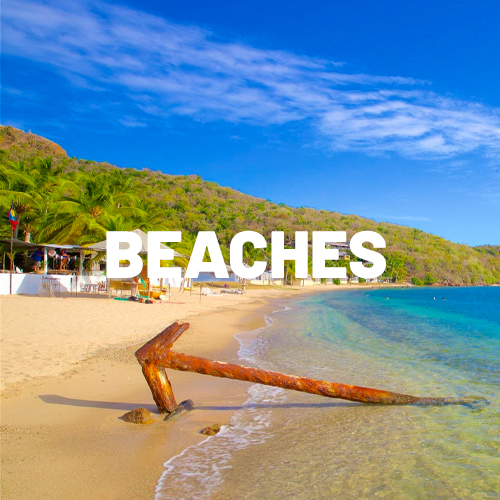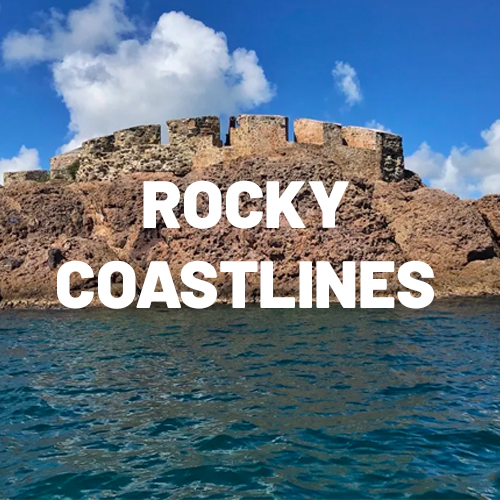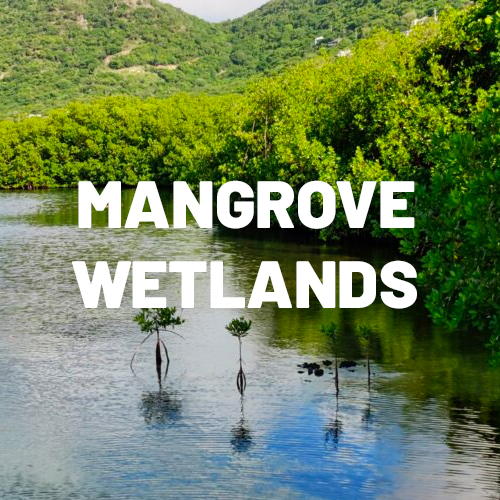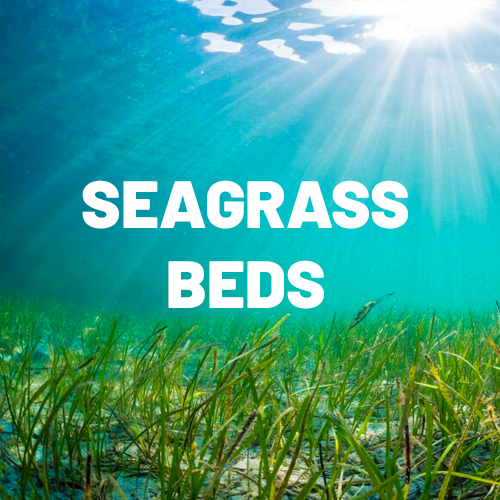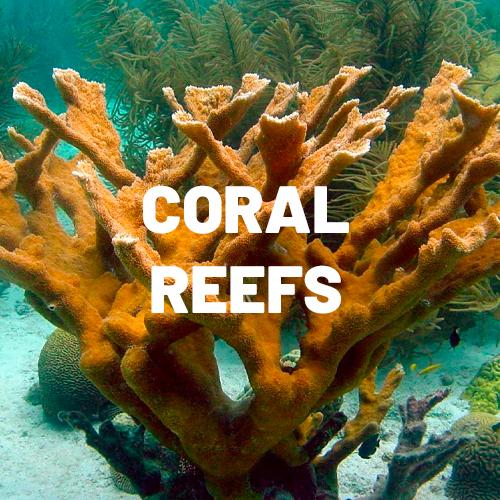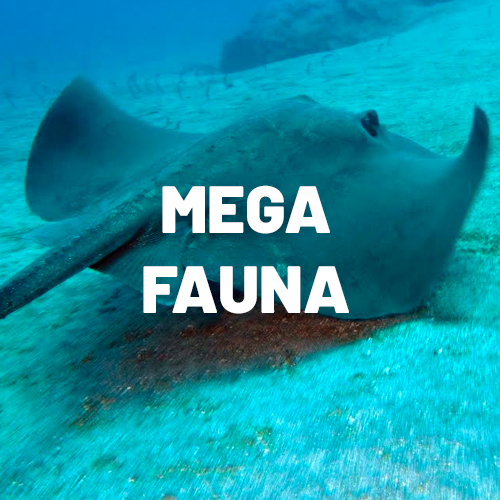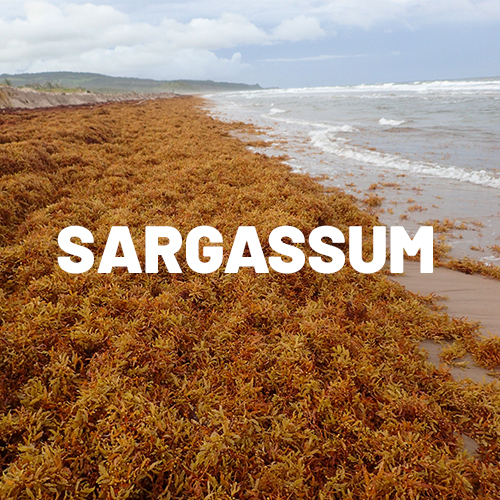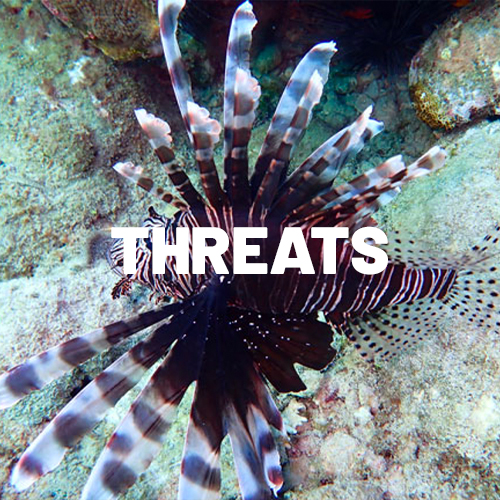Threats
The marine ecosystems of the NDNP are faced by a number of threats. These threats are often from anthropogenic activity.
Developmental Pressures
The expansion of coastal development initiatives can prove detrimental to many marine ecosystems. These developments are often paired with some degradation of the nearby environment. To better understand how the NPA is dealing with the issue of developments, see Management.
Pollution and Waste Management
As the population within the NDNP has grown, so have the issues presented by pollution and poor waste management. The dumping (direct or indirect) of waste into the marine environment has several implications. Physically, it can restrict the ecological connectivity of the ecosystems, disrupt the movement of species, and cause degradation to the habitats. The indirect dumping through runoff, however, can be of greater importance, as the excess nutrients can often result in a process termed eutrophication, which can cause algal blooms, decrease of dissolved oxygen (O2) and lead to organism death. Additionally, the chemicals in the pollutant can cause diseases among the organisms.
Invasive Alien Species
These are species which are not native to the local environment, and whose biology is allowing for a population expansion with associated negative impacts on the local biodiversity.
- Broad-Leaf Seagrass (Halophila stipulacea): This seagrass species competes with the local species. While it does appear to colonize disturbed areas at a faster rate, it may have implications through its ability to provide habitat and food for different organisms.
- Pacific Lionfish (Pterois volitans): The lionfish is a species that originates in the Pacific Ocean. It is a highly reproductive voracious predator, with no locally recognized predators. As such, its population has exploded across the Caribbean region over the last few decades. A common misconception of lionfish is that the flesh is poisonous. The truth is that lionfish are venomous, and it stores its venom within particular spines along its body. Once removed, the lionfish is completely safe for touch and is an excellent food fish.
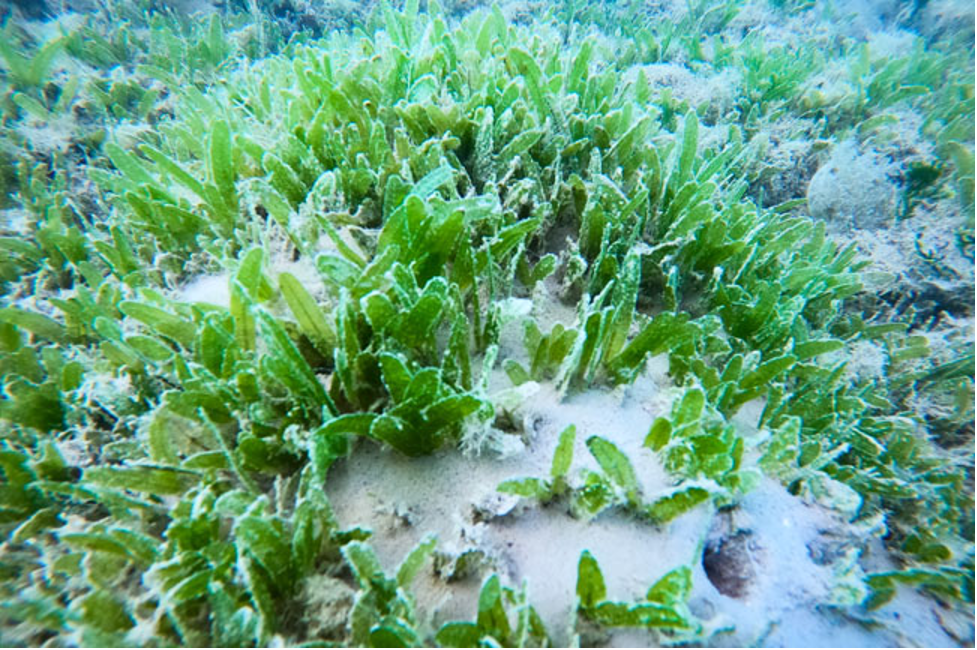
Broad-Leaf seagrass (Halophila stipulacea)
Photo by Ruleo Comacho
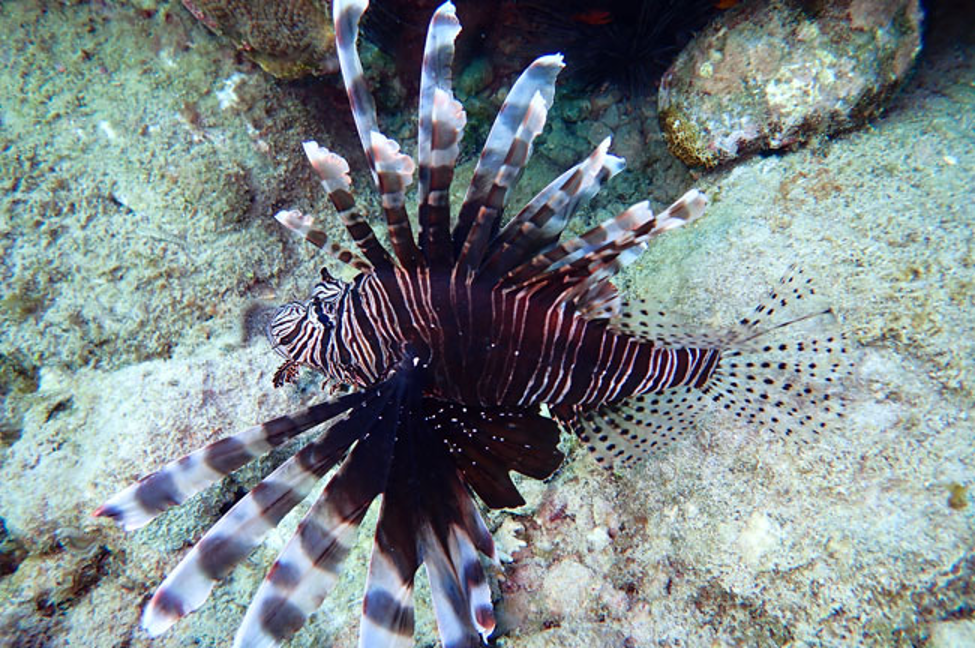
Pacific Lionfish
Photo by Ruleo Comacho
ADDRESS
English Harbour, Antigua
OPENING HOURS
Monday – Friday
08:00 AM – 05:00 PM
Saturday
08:00 AM – 05:00 PM

